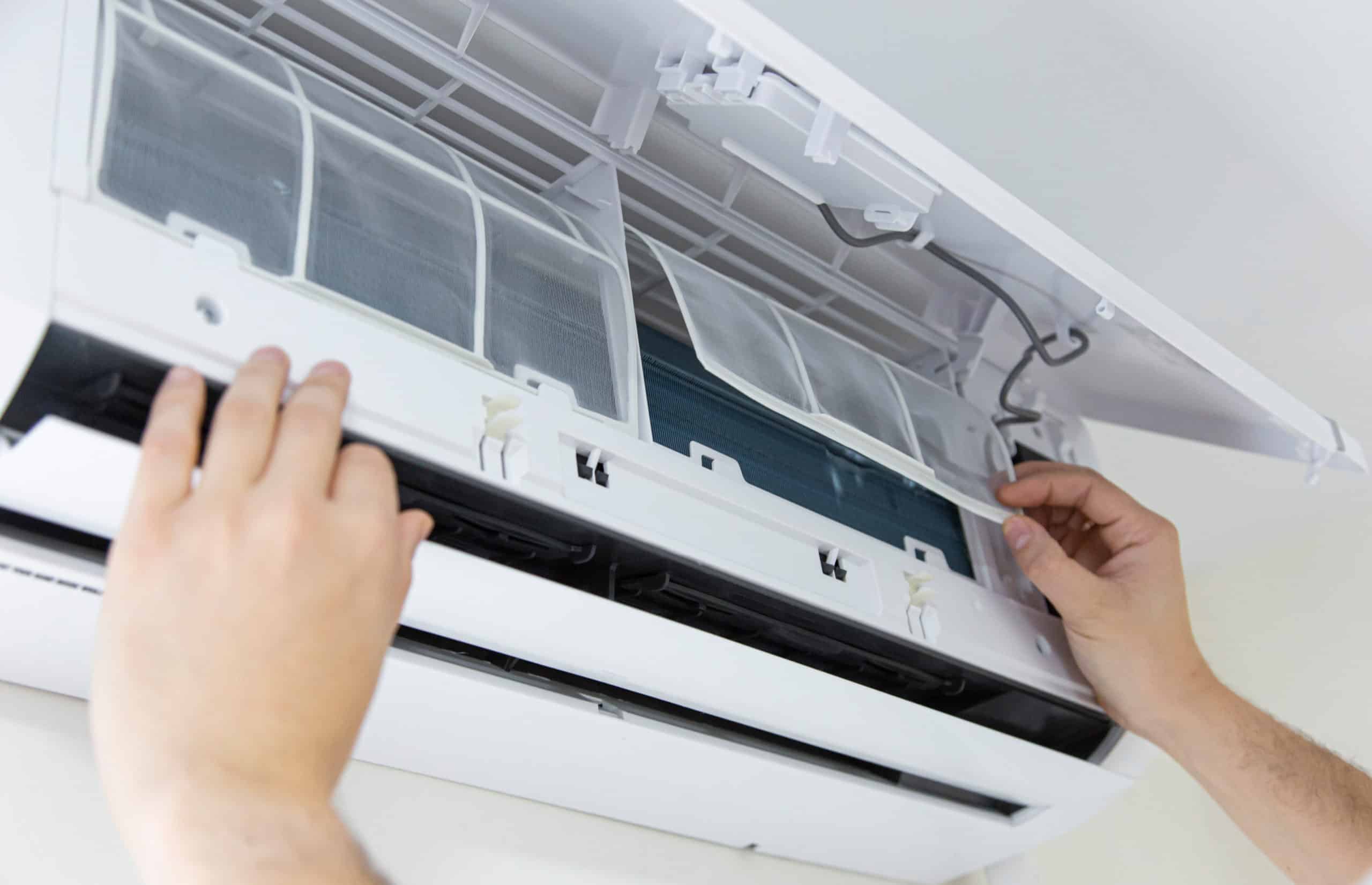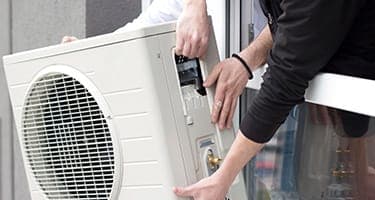Getting The Air Conditioning Repair To Work
Repair Air Conditioner Near Me: Professional Cooling System Remediation Ensures Your Home Remains Comfortable Throughout The Year
Kinds Of A/c Systems
When taking on air conditioning repair work, comprehending the type of a/c system you're handling can conserve time, money, and aggravation. Ever wondered why some units cool a room much faster than others? Or why certain systems appear to break down more frequently? Let's peel back the layers.
Central Air Conditioning
Everything about Repair Air Conditioner Near Me
Picture a cool breeze flowing through a whole house, whispering convenience into every corner. Central air conditioning systems do exactly that. They use a network of ducts to disperse cooled air, counting on a compressor and condenser outside, matched with an evaporator coil inside. But when this complex monster fails, determining the problem can be like discovering a needle in a haystack.
Split Systems

Split systems are a popular choice for numerous homes-- part indoor system, part outdoor compressor. They provide versatility and efficiency, however their dual nature indicates repair work can involve either part. Have you ever heard a weird sound outside your home just to find the indoor unit isn't cooling? That's a timeless sign of a split system problem.
See This Report about Ac Repair Near Me
Window Units
These compact warriors fight summer heat by fitting snugly into a window frame. They combine all parts into a single box. Their simpleness frequently implies less repair work headaches, but overlooking filters or permitting particles buildup can result in lessened efficiency or breakdowns.
Ductless Mini-Splits
The 10-Second Trick For Ac Repair
Ductless systems bypass ductwork completely, making them perfect for homes without existing ventilation. They're quiet, effective, and remarkably resistant. Yet, when repair work are needed, technicians need to be proficient at managing refrigerant lines and electrical connections-- no small task.
Quick Referral Table
| Type | Secret Includes | Typical Repair Work Issues |
|---|---|---|
| Central Air | Ductwork, whole-house cooling | Duct leakages, compressor failure |
| Split System | Indoor & & outside units | Refrigerant leaks, fan motor problems |
| Window Unit | All-in-one, simple setup | Dirty filters, electrical faults |
| Ductless Mini-Split | No ducts, zoned cooling | Line leaks, sensor malfunctions |
The Single Strategy To Use For Air Conditioner Repair Near Me
Deciphering the Many Frequent Air Conditioner Problems
Have you ever wondered why your ac system suddenly stops cooling throughout a sweltering afternoon? One common culprit is a dirty or blocked air filter. This sly villain limits airflow, requiring your system to work overtime, which not just decreases performance however can also result in premature breakdowns. Think of attempting to breathe through a scarf soaked in dust-- it's tiring!
Another regular hiccup is refrigerant leakages. These unnoticeable leakages don't just reduce cooling power but can also damage the compressor, the heart of your a/c system. How frequently do you look for uncommon hissing noises or ice formation on the coils? Capturing these signs early can conserve you from expensive repair work down the line.
Beyond the Fundamentals: Lesser-Known Issues
Repair Air Conditioner Near Me Can Be Fun For Everyone
In some cases, the thermostat itself is the troublemaker. Miscalibrated or defective thermostats send blended signals, triggering the air conditioner to cycle unpredictably. Ever experienced your a/c turning on and off in rapid succession? website That's called brief cycling, a sneaky efficiency drainer that can wear out components much faster than you 'd expect.
Electrical problems, such as used circuitry or a malfunctioning capacitor, may lurk underneath the surface. Air Conditioning Repair. These typically manifest as AC units failing to begin or all of a sudden shutting down. A professional eye understands to test these components with precision tools, something a casual look won't reveal
Expert Tips for Diagnosing Common Air Conditioning Issues
How Ac Air Conditioner Repair can Save You Time, Stress, and Money.
- Check and replace air filters routinely-- every 1 to 3 months depending upon use and environment.
- Listen for unusual sounds like rattling or buzzing that might indicate loose parts or electrical faults.
- Inspect the outdoor unit for debris or clogs that hamper airflow and cause getting too hot.
- Search for frost buildup on evaporator coils, a tip towards refrigerant issues or airflow restrictions.
- Evaluate the thermostat settings and recalibrate if the temperature readings feel off.
Quick Reference Table: Manifestation & & Probable Triggers

| Symptom | Probable Cause | Specialist Idea |
|---|---|---|
| Warm air blowing | Low refrigerant or filthy coils | Tidy coils and inspect for leaks right away |
| Brief cycling | Thermostat concerns or extra-large system | Adjust thermostat settings and consult sizing standards |
| Unit won't start | Electrical faults or capacitor failure | Test wiring and change capacitors as required |
| Water leak | Clogged drain line or frozen evaporator | Clear drain lines and examine for coil icing |
DO IT YOURSELF Air Conditioner Upkeep Tips
Not known Facts About Ac Fixing
Ever noticed your a/c unit sputtering like an old engine on a hot summertime day? Overlooking subtle signs frequently suggests more than simply a sweaty afternoon-- it's a prelude to unanticipated a/c repair costs. However what if you could catch those whispers before they develop into wails? Routine do it yourself maintenance can be your very first line of defense.
Simple Actions to Keep Your A/c Running Smoothly
Rumored Buzz on Ac Fixing
- Tidy or Change Filters: A clogged up filter resembles attempting to breathe through a scarf. Every 1-3 months, check and swap out your filters. It enhances airflow and efficiency, avoiding compressor pressure.
- Inspect the Condenser Coils: Dust and particles function as undetectable blankets smothering your system's cooling power. Gently brush or vacuum the coils, however avoid harsh chemicals that might deteriorate the metal.
- Examine the Drain Line: When was the last time you glimpsed at your drain pan? A clogged up drain can trigger water leakages and foster mold development. Flushing it with a vinegar service monthly keeps the flow clear.
- Seal and Insulate: Are your ductworks whispering leakages? Sealing spaces with mastic or foil tape increases efficiency and reduce unequal cooling.
Pro Tips Beyond the Fundamentals
- Measure your unit's voltage to capture subtle electrical wear before it stimulates huge issues.
- Listen for uncommon hums or rattles-- these acoustic breadcrumbs frequently indicate loose parts or failing motors.
- Keep outdoor systems shaded however guarantee a minimum of 2 feet of clearance around them for optimal airflow.
Ask yourself: Are you hearing your air conditioning's quiet SOS or just waiting for it to scream? Requiring time for DO IT YOURSELF a/c upkeep transforms reactive repair work into proactive care, conserving sweat, stress, and yes, money.
A Biased View of Ac Repair
Why Expertise in Air Conditioner Repair Matters
Picture this: your air conditioning system sputters and groans throughout a scorching afternoon, leaving you sweltering inside your home. Would you rely on an amateur fumbling with fragile components, or would you seek the reassurance of a expert a/c specialist!.?.!? The intricacies of modern air conditioning systems demand accuracy and experience. A small miscalculation can intensify a small breakdown into a costly disaster.
Not known Facts About Air Conditioning Repair
Unseen Complexities Behind the Cool Breeze
Many undervalue the layers hidden below the sleek exterior of an air conditioning unit - AC Fixing. From refrigerant leaks that calmly drain performance to defective thermostats that misread temperature levels, these problems need more than a basic toolkit. Specialists have a keen eye for identifying issues that average property owners ignore
Necessary Tips for Selecting the Right Professional
Indicators on Air Conditioning Repair You Need To Know
- Accreditation and Training: Verify qualifications; a specialist trained in the latest HVAC innovations is important.
- Experience with Specific Systems: Not all air conditioner units are created equal; discover somebody knowledgeable about your model's quirks.
- Diagnostic Technique: Competent professionals utilize sophisticated tools-- like electronic leakage detectors and thermal imaging-- to pinpoint surprise faults.
What to Anticipate from a Pro's Diagnostic Process
| Action | Function | Specialist Insight |
|---|---|---|
| Visual Assessment | Identify apparent wear or damage | Look for corrosion or unusual sounds-- an indication typically neglected |
| Pressure Evaluating | Detect refrigerant leakages | Subtle pressure drops can hint at micro leakages undetectable to the naked eye |
| Electrical Testing | Make sure circuit stability | Loose connections can imitate extreme mechanical failures |
Some Ideas on Repair Air Conditioner Near Me You Should Know
Why Do It Yourself Typically Falls Short
Tempting as it is to tinker with your a/c system, DIY fixes regularly miss the root cause. Topping off refrigerant may temporarily cool your area but disregards leaks that get worse over time. Professional specialists do not simply spot signs; they pursue the underlying mechanical and electrical faults that sap efficiency.
An Unbiased View of Air Conditioning Repair
Concerns to Ask Before Working with
- What diagnostic tools do you use to recognize problems?
- Can you discuss the repair process and anticipated outcomes?
- Are you knowledgeable about the refrigerants compatible with my system?
- Do you follow security protocols for dealing with electrical parts?